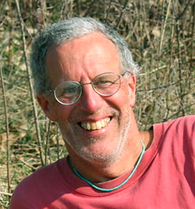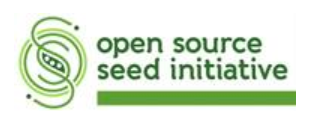Seed sharing has been a venerable tradition since the dawn of agriculture. Sharing has been a way of honoring the renewal of life, developing new seedlines, and maintaining a farmer’s independence while helping other farmers. Modern capitalism, armed with new technologies and legal powers, has savaged this tradition of seed-sharing, with disastrous results.
For the past several decades, large biotech corporations have aggressively engineered seeds and the design of seed markets to make them proprietary monopolies. This has had profound consequences for farmers and global agriculture: legal bans on seed-sharing, a loss of biodiversity, less innovation in seed breeding, and higher prices that threaten sustainable agriculture and the economic sovereignty of farm communities, especially in the Global South.

To explore the current state of seed-sharing movement and its battles against proprietary seed, I spoke with Jack Kloppenburg of the Open Source Seed Initiative (OSSI) in my latest episode of Frontiers of Commoning (Episode #63).
As a professor at the University of Wisconsin, Madison, since 1985 (he’s now a professor emeritus), Kloppenburg has been at the forefront of seed-sharing issues for forty years. His 1990 book, First the Seed, was a pioneering look at the political economy of plant biotechnology, a theme that he later explored in Seeds and Sovereignty, about the corporate capture of genetic resources.
“For millennia, the commons was farmers, peasants, and Indigenous peoples throughout the world saving, reclaiming, sharing, moving, improving, and developing the crop species that we all now depend upon,” said Kloppenburg. “Sharing is the way that it’s always been done, with no expectation of return. This is the way that genetic resources have always been developed. But it’s also true that this commitment to sharing, to gifting, has been profoundly exploited.”
This ancient tradition began to erode in 1980, when private ownership and control of seeds began to intensify. The doors were opened by a landmark U.S. Supreme Court ruling, Chakrabarty, that allowed lifeforms to be patented. Augmenting this legal doctrine was a new American law, the Bayh-Dole Act, that in 1980 authorized universities to patent and commercialize research produced by their scientists. Prior to that law, universities -- as taxpayer-supported institutions dedicated to the public interest, by custom and law -- rarely sought to privately profit from their publicly funded work.
These developments -- along with genetic engineering to produce proprietary seedlines and restrictive contracts governing how farmers and breeders could use commercial seeds – inaugurated an historic enclosure of seed commons and the corporate dominance of seed markets.
Over the past fifty years, Kloppenburg explained, agricultural seeds “have been changed from ‘share-wealth’ belonging to everyone, exchanged freely to the great advantage of farmers, into a commodity that can only be accessed after payment. And intellectual property rights have been applied that restrict seed-saving and exchange, which have been deeply problematic.”
Kloppenburg has been a leading activist, collaborating with farmers, seed breeders, small seed companies, and gardeners, in trying to figure out ways to protect seed-commoning from corporate enclosures. The Open Source Seed Initiative, founded in 2012, has been a key vehicle and voice in reclaiming the right to share seeds and strengthening all the benefits that flow from seed-sharing: healthier soils, empowered farmers and communities, biodiversity, more robust seed innovation.
These historic functions of seed commons have been sabotaged by large companies intent on converting a gift of nature – renewable, adaptable, shareable – into a privately owned products that can command high prices. With great ingenuity and aggressive legal tactics, seed companies have suppressed the natural fecundity of seeds.
Some parts of the open seed movement, especially in Europe, have turned to legal licenses as a way to assure the shareability of seeds. In this, they were taking direct inspiration from the General Public License for software, which authorizes users to do whatever they like with the software code so long as they make their own innovations legally shareable as well.
However, Kloppenburg and many American farmers and breeders found the legal and practical complexities of formal licenses – especially their enforceability when facing large, wealthy corporations – to be too formidable and impractical.
Small farmers and breeders, by temperament and habit, are not eager to become enforcers of legalistic, complicated licenses. Small seed companies also don’t want to make their seeds less attractive to their customers by using licenses. “You end up looking like Monsanto, with a two-page, single-spaced license that can only be understood by lawyers,” said Kloppenburg. “The people who we want to common with – our fellow commoners – don’t want to see it this way.”

So OSSI has focused more on changing the culture of seed sharing and breeding, by trying to cultivate social practices and a culture of sharing, using an “honor system” pledge. “The OSSI Pledge is two sentences,” said Kloppenburg, “and it can be put on a seed packet. And it can be shared and very easily understood.”
The OSSI Pledge reads as follows: “You have the freedom to use these OSSI-Pledged seeds in any way you choose. In return, you pledge not to restrict others’ use of these seeds or their derivatives by patents or other means, and to include this Pledge with any transfer of these seeds or their derivatives.”
Kloppenburg conceded that while Americans may have trouble with this non-legal approach, it amounts to a commitment to build a social system and culture to defeat those who act as free riders or those who might profit from your own innovation.” There are complications, as Kloppenburg explains in the podcast, but OSSI is resolute that it is the best approach.
You can listen to the full interview with Jack Kloppenburg here.










Recent comments